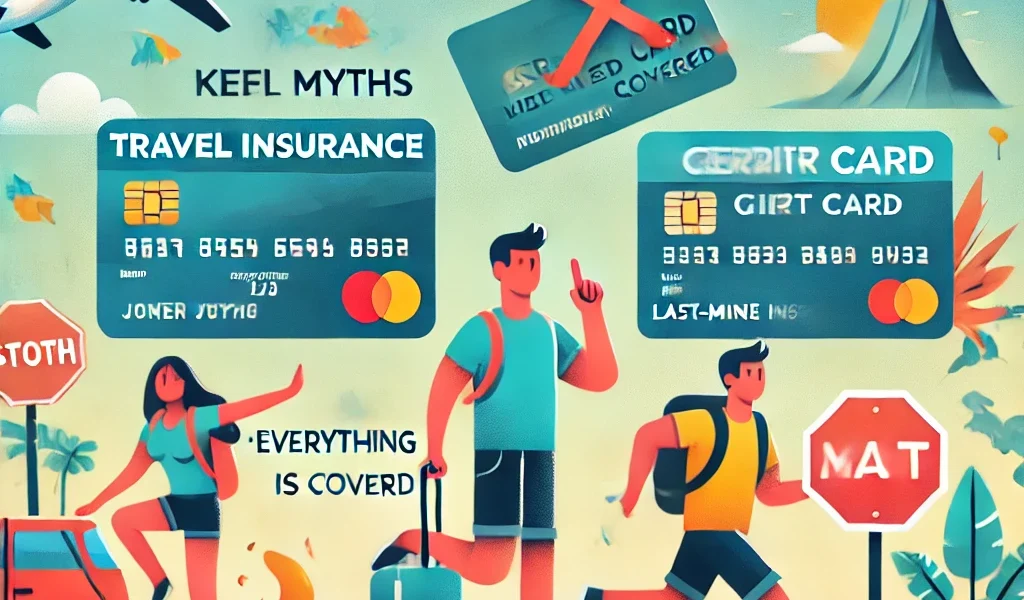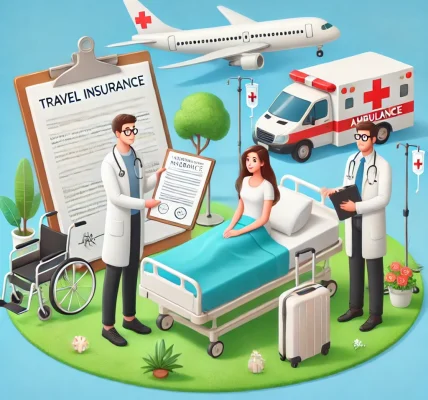Introduction
Travel insurance is often misunderstood, leading many travelers to skip it entirely or assume they are already covered. Unfortunately, these misconceptions can leave you vulnerable to unexpected financial losses, medical emergencies, or trip disruptions.
In this article, we debunk the top five myths about travel insurance, helping you make informed decisions for your next trip.
Myth #1: “Travel Insurance is a Waste of Money”
Reality: Travel Insurance Saves You From Major Financial Losses
Many travelers believe that travel insurance is an unnecessary expense, especially if they have never faced travel-related issues before. However, the truth is that a single unexpected event—such as a medical emergency, flight cancellation, or lost baggage—can cost thousands of dollars.
Why It’s Important:
- Medical emergencies abroad can be expensive, with hospital bills reaching tens of thousands of dollars.
- Trip cancellations due to unforeseen events (such as illness or natural disasters) can cause financial loss.
- Baggage loss or theft can be costly and inconvenient.
Fact: According to travel industry reports, millions of dollars in claims are paid out every year, proving that travel insurance is far from a waste of money.
Myth #2: “My Credit Card Provides Enough Travel Insurance”
Reality: Credit Card Coverage is Often Limited
While many credit cards offer travel insurance benefits, they often come with limitations. Some only provide coverage if you book the trip using that specific credit card, while others offer limited protection that excludes medical emergencies or adventure activities.
What You Should Know:
- Credit card travel insurance typically does not cover medical evacuation, trip cancellation, or pre-existing conditions.
- Coverage limits may be much lower than what you would need in a serious emergency.
- Some credit cards exclude coverage for specific destinations or high-risk activities.
Tip: Always review your credit card’s policy details before assuming you’re fully covered.
Myth #3: “I’m Young and Healthy, So I Don’t Need Travel Insurance”
Reality: Accidents and Illnesses Can Happen to Anyone
Even if you’re in perfect health, unexpected illnesses, accidents, or emergencies can still occur. From food poisoning to sports injuries, medical emergencies don’t discriminate based on age.
Risks That Can Affect Anyone:
- Food poisoning or infections in foreign countries.
- Accidents while engaging in adventure sports like hiking, diving, or skiing.
- Unexpected natural disasters or political unrest affecting your travel plans.
Fact: Medical evacuation alone can cost $50,000 or more, making travel insurance a smart investment for all travelers.
Myth #4: “Travel Insurance Covers Everything”
Reality: Travel Insurance Has Limitations and Exclusions
Some travelers mistakenly believe that travel insurance is a “get-out-of-jail-free” card that covers any and all travel issues. However, policies come with specific terms and conditions, and not everything is covered.
Common Exclusions:
- Pre-existing medical conditions (unless specified in the policy).
- High-risk activities (e.g., skydiving, bungee jumping) unless covered under special adventure plans.
- Losses due to reckless behavior (such as drinking-related incidents).
- Civil unrest or war-related cancellations in some regions.
Tip: Always read the fine print before purchasing a travel insurance policy to ensure you understand what is and isn’t covered.
Myth #5: “I Can Buy Travel Insurance Anytime Before My Trip”
Reality: Timing Matters When Buying Travel Insurance
Many travelers assume they can purchase travel insurance right before their trip. While this is technically possible, waiting until the last minute can limit your coverage options.
Why Timing is Important:
- If you purchase insurance after an issue (such as a hurricane or illness) arises, it won’t be covered.
- “Cancel for Any Reason” coverage must often be purchased within a certain time frame after booking the trip.
- Pre-existing conditions may only be covered if you buy insurance soon after making your initial trip deposit.
Tip: Purchase travel insurance as soon as you book your trip to get the maximum coverage benefits.
Conclusion
Travel insurance is an essential safety net that protects travelers from unexpected expenses and disruptions. By debunking these common myths, you can make informed decisions and ensure you’re adequately covered for your next adventure.
Instead of assuming you don’t need coverage, take the time to compare policies and select one that best suits your travel plans. A little investment in travel insurance can save you from significant financial burdens and allow you to travel with peace of mind.




